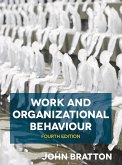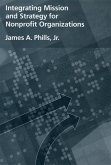What is to be made of the outcry when newly issued recycling "wheelie" bins are discovered to contain microchips for weighing and evaluating householders' rubbish? The angry accusations that speed cameras are generating excessive income for the government? The consternation at the measures taken by airports to heighten security in the wake of the increased threat of terrorist attacks? These increasingly widespread reactions to ordinary events and everyday phenomena share a common theme. They all embody concerns about the ways in which our lives are increasingly regulated and controlled in relation to ordinary objects and technologies. This book takes these concerns as the starting point for exploring the ways in which relations of governance and accountability in contemporary life are organized around ordinary, everyday, pervasive objects and technologies. In contrast to the contemporary literature on governance, the book argues for the importance of examining how accountability relations are enacted on the ground, in relation to mundane objects and technologies. In particular, it is crucial to understand how governance and accountability are mediated through material relations involving ordinary everyday objects and technologies. The book argues that the key to understanding governance is to focus on political constitution at the level of ontology rather than just on the traditional politics of organization, structure, and human compliance. The term ontology is used here to draw attention to the social and cultural processes whereby the nature and existence of ordinary things come to matter. The argument is developed in relation to a wide variety of empirical materials drawn from three main areas of everyday life: waste management and recycling; the regulation and control of traffic (especially speed cameras and parking); and security and passenger movement in airports.
Dieser Download kann aus rechtlichen Gründen nur mit Rechnungsadresse in A, B, BG, CY, CZ, D, DK, EW, E, FIN, F, GR, HR, H, IRL, I, LT, L, LR, M, NL, PL, P, R, S, SLO, SK ausgeliefert werden.









